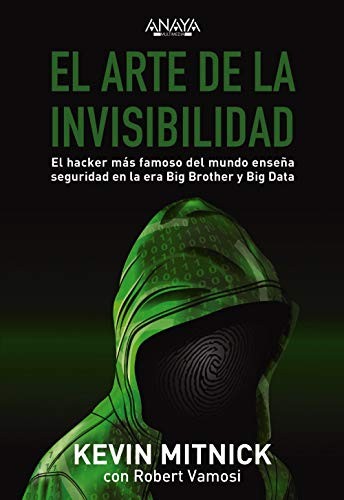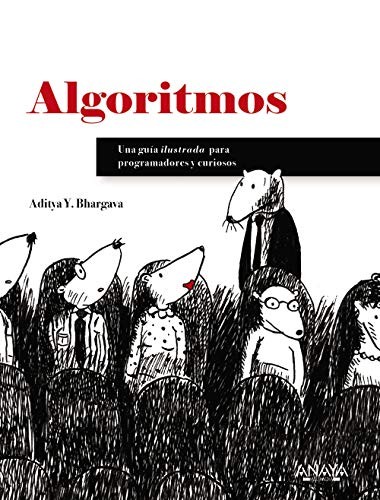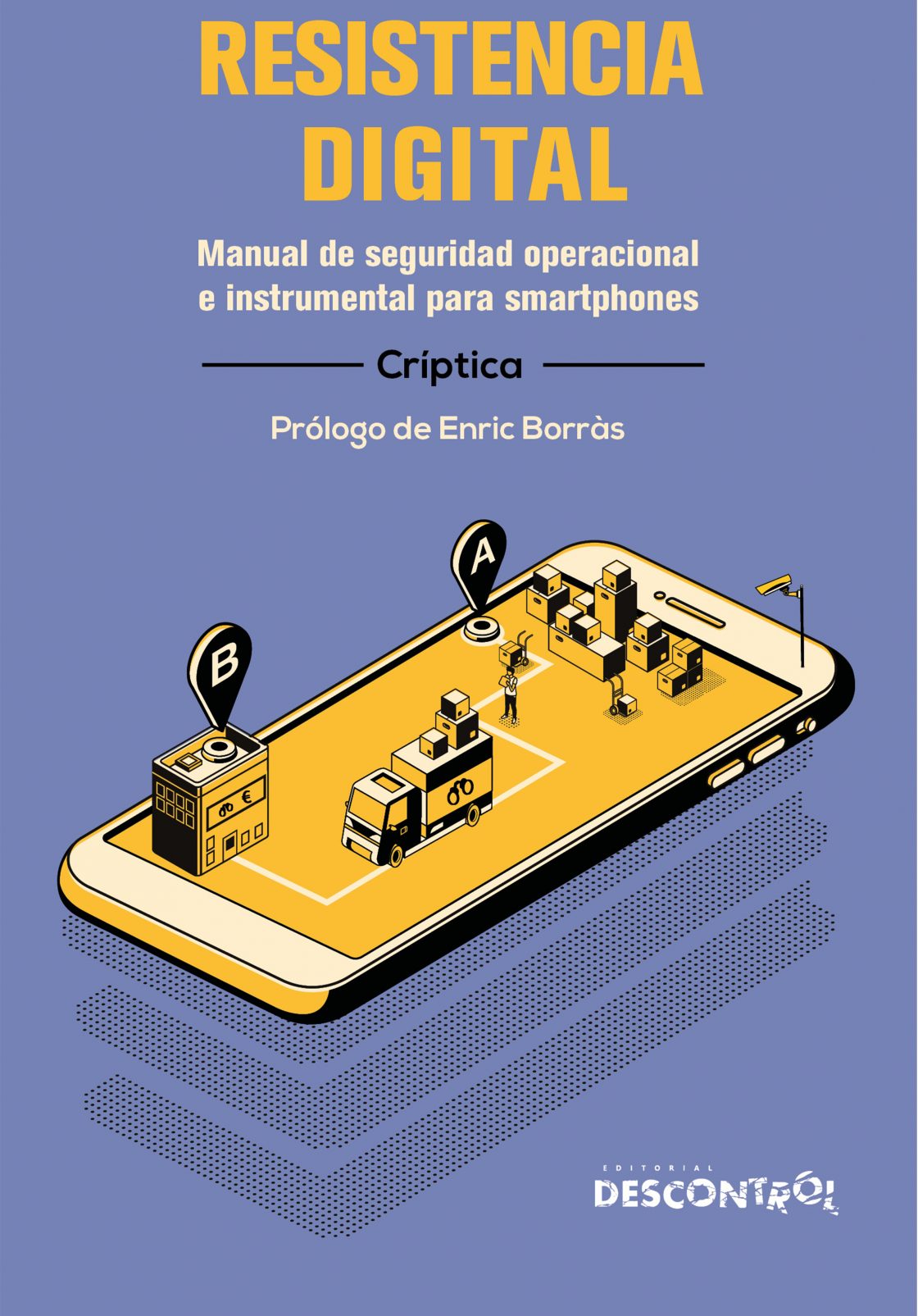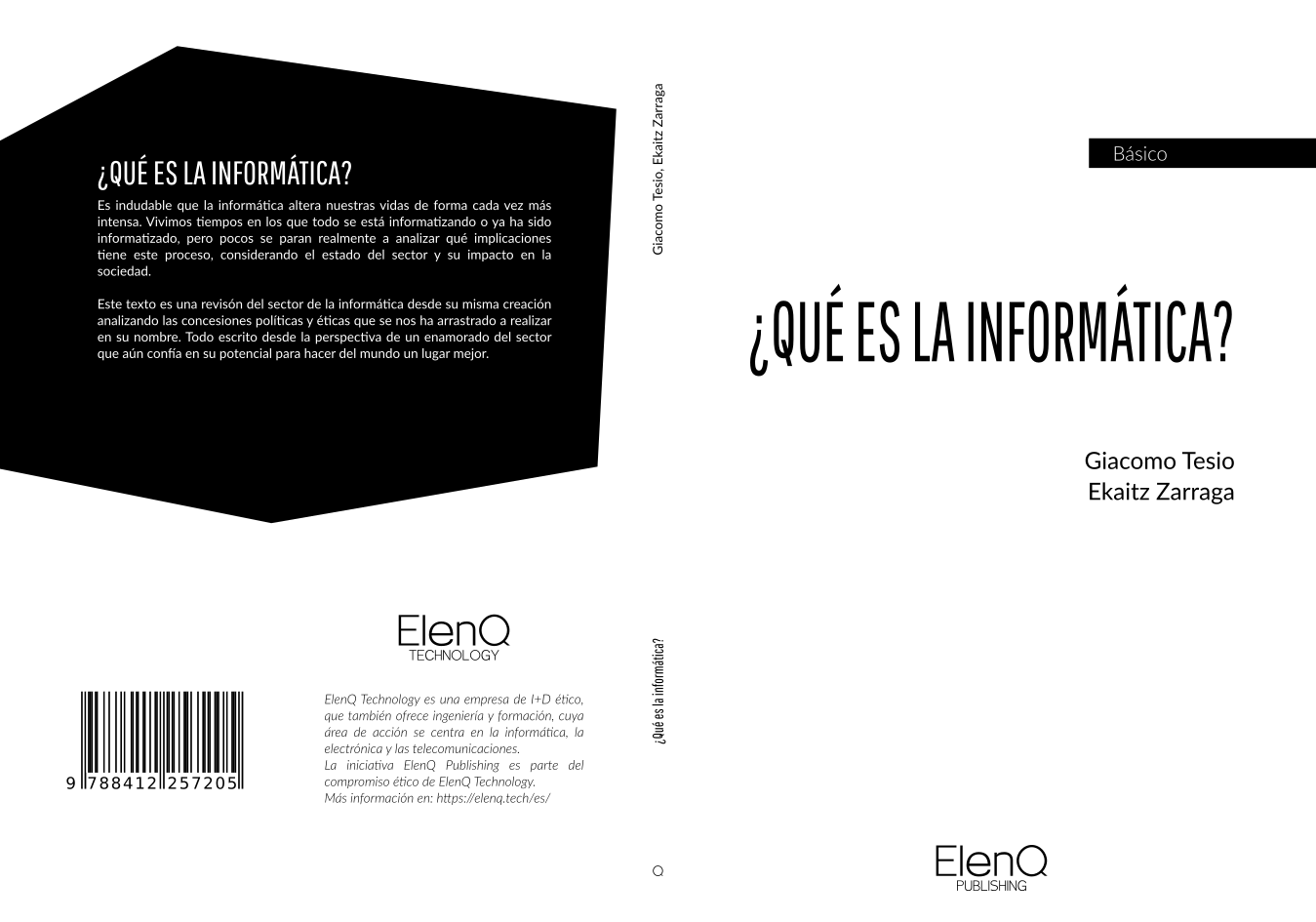relectura súper útil.
Perfil de usuario
Este enlace se abre en una ventana emergente
Los libros de jartigag@lectura.social
Actividad del usuario
Feed RSS Volver
jartigag@lectura.social empezó a leer Historia de un idiota contada por el mismo de F. De Azua
La seguridad operacional es una rutina. Debes entrenarte... - Diariamente: integra la rutina en tu día a día. - Gradualmente: empieza por lo básico y hazla crecer. - Eficientemente: no desdeñes la seguridad ni la comodidad; ambas son necesarias para una rutina eficaz. - Colectivamente: transmite tus prácticas a tus círculos, protegeos los unos a los otros. - De forma actualizada: infórmate de las tendencias de ataque que puedan afectarte, con tal de actualizar tu rutina para enfrentarte a ellas. - Consciente de los límites : no hay garantías de que tu rutina te haga invulnerable, sea cual sea su grado de complejidad.
— Resistencia Digital por Críptica (Página 38)
jartigag@lectura.social empezó a leer Resistencia Digital de Críptica
jartigag@lectura.social empezó a leer The agile samurai de Jonathan Rasmusson (The pragmatic programmers)
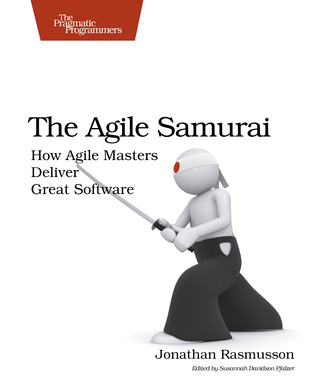
The agile samurai por Jonathan Rasmusson (The pragmatic programmers)
Looks at the principles of agile software development, covering such topics as project inception, estimation, iteration management, unit testing, refactoring, …
El pacto entre estados, mercados e individuos no es fácil. El Estado y el mercado no se ponen de acuerdo acerca de sus derechos y obligaciones mutuos, y los individuos se quejan de que ambos exigen demasiado y ofrecen muy poco. En muchos casos, los individuos son explotados por los mercados, y los estados emplean sus ejércitos, fuerzas de policía y burocracias para perseguir a los individuos en lugar de defenderlos. Pero es sorprendente que este pacto funcione, aunque sea de manera imperfecta. Porque quebranta incontables generaciones de arreglos sociales humanos. Millones de años de evolución nos han diseñado para vivir y pensar como miembros de una comunidad. Y en tan solo dos siglos nos hemos convertido en individuos alienados. Nada atestigua mejor el apabullante poder de la cultura.
— Sapiens por Yuval Noah Harari (Página 396)
jartigag@lectura.social stopped reading
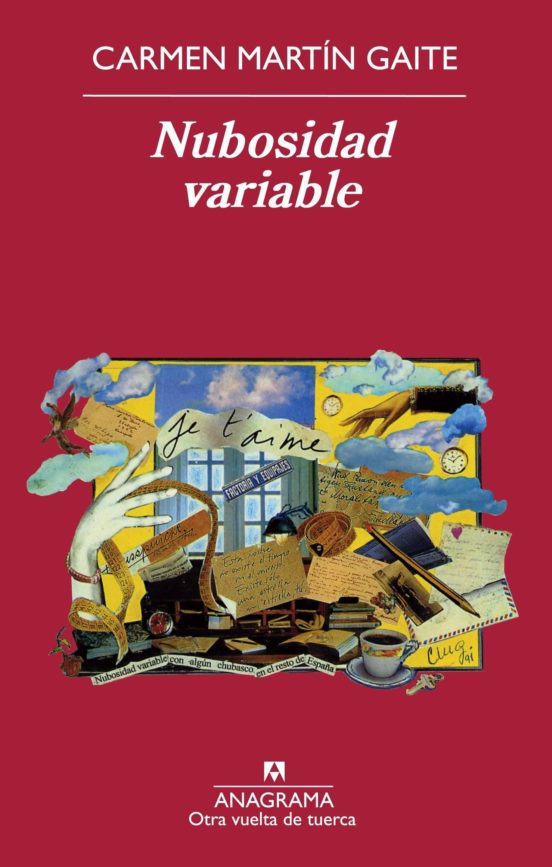
Nubosidad variable por Carmen Martín Gaite (Narrativas hispánicas ;)
Sofía Montalvo y Mariana León fueron amigas en el colegio. Sofía se ha visto atrapada en una oscura existencia de …
jartigag@lectura.social empezó a leer Nubosidad variable de Carmen Martín Gaite (Narrativas hispánicas ;)

Nubosidad variable por Carmen Martín Gaite (Narrativas hispánicas ;)
Sofía Montalvo y Mariana León fueron amigas en el colegio. Sofía se ha visto atrapada en una oscura existencia de …
Borjadf reseñó La marca de Fríða Ísberg
Distopía canónica
4 estrellas
La Marca nos habla de una Islandia futura (no se aclara directamente el año, pero se deja caer que estamos en la década de 2040) en la que la salud mental determina tu lugar en la sociedad. Con varios personajes representativos (una profesora, un joven sin futuro, una ejecutiva agresiva, un político...) Frida Isberg describe una sociedad en la que las apariencias y la corrección están institucionalizadas y los ciudadanos deben demostrar empatía y sensibilidad para poder disfrutar de los privilegios y la seguridad del estado del bienestar.
Este tipo de relatos, que describen futuros realistas y familiares con elementos raros pero posibles, me suelen gustar bastante. En La Marca se agradece que la autora haga el ejercicio de imaginar diversos puntos de vista de un asunto ético y moral con muchas aristas, de explicitar el funcionamiento de lo que propone (los exámenes de empatía, el proceso de obtención …
La Marca nos habla de una Islandia futura (no se aclara directamente el año, pero se deja caer que estamos en la década de 2040) en la que la salud mental determina tu lugar en la sociedad. Con varios personajes representativos (una profesora, un joven sin futuro, una ejecutiva agresiva, un político...) Frida Isberg describe una sociedad en la que las apariencias y la corrección están institucionalizadas y los ciudadanos deben demostrar empatía y sensibilidad para poder disfrutar de los privilegios y la seguridad del estado del bienestar.
Este tipo de relatos, que describen futuros realistas y familiares con elementos raros pero posibles, me suelen gustar bastante. En La Marca se agradece que la autora haga el ejercicio de imaginar diversos puntos de vista de un asunto ético y moral con muchas aristas, de explicitar el funcionamiento de lo que propone (los exámenes de empatía, el proceso de obtención de hipotecas, la policía...) y no solo de presentar las ideas, y de a la vez no ser demasiado literal, demasiado obvia. La lectura es bastante amena, directa, con alguna concesión a lo poético, e Isberg consigue que las diferentes voces sean creíbles, el uso de diferentes tonos y estilos funciona y ayuda muchísimo a conocer a los personajes, a entenderlos.
Una novela ambientada en un lugar en principio tan remoto que acaba por ser universal.
jartigag@lectura.social terminó de leer La confesión de María Zambrano (Biblioteca de ensayo -- 5)
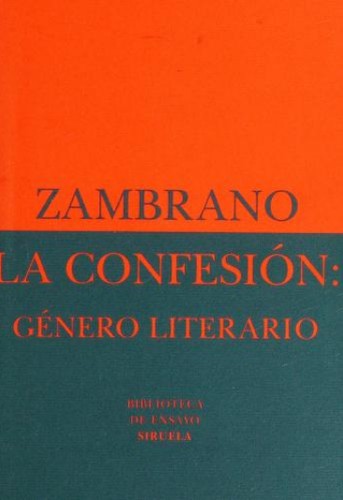
La confesión por María Zambrano (Biblioteca de ensayo -- 5)
Mientras que la matemática pertenece al dominio de la mente humana y es comunicable, cualquier concepto que pertenece a la matemática es información. Como tal, también pertenece al campo de la informática.
Lo contrario no es cierto: los errores están muy presentes en la informática pero no se dejan ver en el mundo de las matemáticas.
Como consecuencia, las matemáticas son parte de la informática, y no al contrario.
Aunque esta afirmación puede parecer una herejía al principio, no debería sorprendernos demasiado. Podemos observar que la informática altera cada aspecto de la vida humana. Este fenómeno tiene una explicación sencilla: transforma la forma en la que la humanidad piensa colectivamente. La información pertenece al dominio de la mente humana y, al compartirse con otros miembros de la comunidad, construye la cultura de dicha comunidad. Después, la cultura vuelve a la mente de los nuevos miembros de la comunidad a modo de información en un bucle infinito.
— ¿Qué es la informática? por Giacomo Tesio, Ekaitz Zárraga (Página 21)
Sería más fácil si la informática sólo tratara de algoritmos, pero los programas informáticos no son información sino datos. Los programas no existen en la mente humana, sino en un soporte físico reproducible por una computadora.
Como datos que son, los programas informáticos pueden representar un algoritmo correcto de forma errónea por la mera razón de que errar es humano.
Cada programa no es más que una de las posibles representaciones de un algoritmo y, junto con el propio algoritmo, acarrea gran cantidad de información añadida.
Los errores, conocidos como bugs, son tan inherentes a la informática que han creado un amplísimo conjunto de herramientas para cazarlos y eliminarlos… sin demasiado éxito.
— ¿Qué es la informática? por Giacomo Tesio, Ekaitz Zárraga (Página 20)
Entonces, ¿qué es la informática?
Campo del conocimiento humano que estudia cómo la información puede ser transferida, almacenada, representada, interpretada y transformada, así como el conjunto de herramientas que se relacionan con dicho conocimiento.
La informática trata sobre información. Trata sobre humanos y no sobre máquinas. Las computadoras son meros reflejos de nuestra mente.
Como ocurre habitualmente, esta perspectiva europea es diametralmente opuesta a la americana, atribuida a Knuthz, que define la Ciencia de la Computación como el «estudio de los algoritmos».
El problema de la nomenclatura no es sólo filosófico: centrándonos en las computadoras, nos negamos la posibilidad de entender la amplitud del campo la informática.
— ¿Qué es la informática? por Giacomo Tesio, Ekaitz Zárraga (Página 19)
«Sin construcciones —recitó Dex–, pocos misterios desvelarás. Si no conoces misterios, tus construcciones fracasarán. Encuentra la fuerza para hacer ambas cosas».
—Tu religión pone mucho énfasis en el propósito, ¿verdad? En que cada persona encuentre la mejor forma de contribuir al conjunto.
—Decidir tu propósito es una de las cosas más valiosas que existen.
—Eres un animal, hermane Dex. Y los animales no tienen un propósito. Nada lo tiene. El mundo existe sin más. Si quieres hacer cosas que sean significativas para otra gente, ¡pues vale! ¡Bien! ¡Yo también quiero hacerlas! Pero es suficiente con existir en el mundo y maravillarte por él. No necesitas justificarlo ni ganártelo. Tienes permiso para vivir sin más.
—No es lo mismo en absoluto —replicó—. Soy diferente porque quiero algo más. No sé de dónde sale esa necesidad, pero la tengo y no quiere callarse.
—Y yo digo que creo que estás confundiendo algo aprendido con algo instintivo.
—Yo creo que no. La simple supervivencia no es suficiente para mucha gente. Tenemos deseos y ambiciones que superan nuestras necesidades físicas.
El robot reflexionó sobre aquello.
—Yo también tengo deseos y ambiciones, hermane Dex. Pero, si no cumplo ninguno de ellos, pues vale. No me machacaría por ello.
Dex giraba la taza entre sus manos sin parar.
—¿No te molesta? —preguntó—. ¿La idea de que, al final, tu vida no haya significado nada?
—Eso es lo que le ocurre a toda la vida que he observado. ¿Por qué me molestaría? —Los ojos de Onfalina brillaron con intensidad—. ¿No te parece que la consciencia es de lo más emocionante? Aquí estamos, en este universo incomprensiblemente grande, en esta luna minúscula dando vueltas alrededor de este planeta incidental, y durante todo el tiempo que este escenario al completo ha existido, cada componente se ha reciclado una y otra y otra vez en una infinidad de configuraciones increíbles y, a veces, esas configuraciones son lo bastante especiales para poder percibir el mundo que las rodea. Tú y yo… solo somos átomos que se dispusieron de la forma adecuada y podemos comprender eso sobre nosotres. ¿No es maravilloso?
— Monje y Robot por Becky Chambers (Página 121 - 124)
jartigag@lectura.social empezó a leer Monje y Robot de Becky Chambers

Monje y Robot por Becky Chambers
Le hermane Dex nunca ha escuchado el canto de los grillos.
Aunque lleva una vida plena y tranquila en …
